Raleigh, North Carolina, is home to a variety of stinging insects that can be a nuisance and a danger to residents. Understanding these insects, their nesting habits, and the severity of their stings can help you stay safe and take appropriate measures to control them. Here’s a detailed look at the top seven stinging insects in our area, along with some honorable mentions.
1. Yellow Jackets
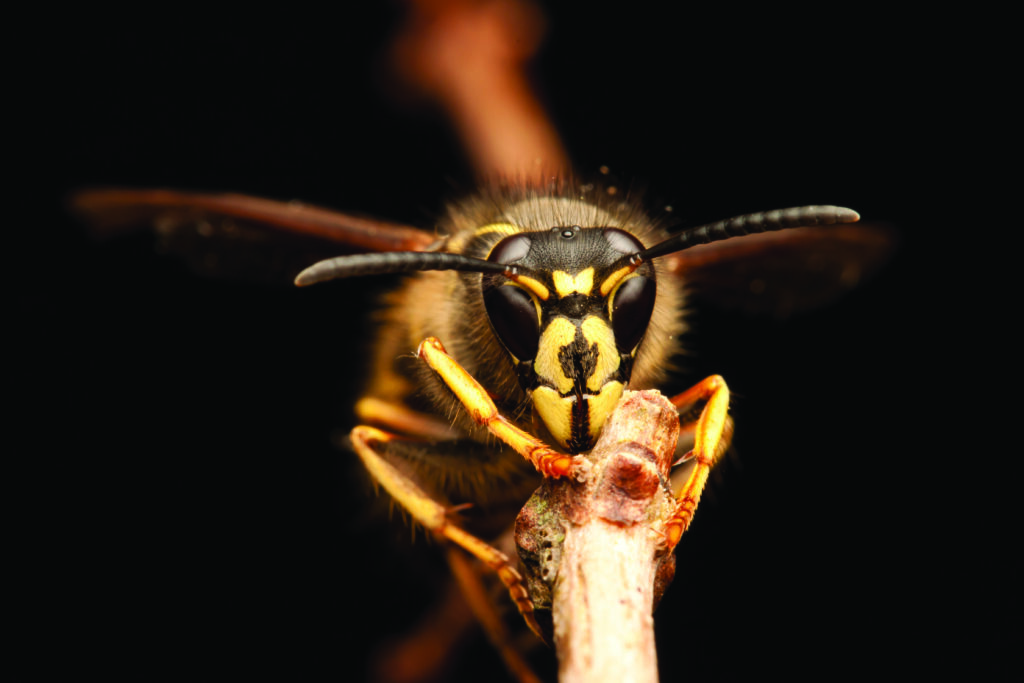
Yellow jackets are among the most aggressive stinging insects. They are easily recognizable by their black and yellow striped bodies. These insects often build nests in hidden locations such as underground burrows, wall voids, and landscape timbers. Their nests are made of a papery substance that is typically buried under ground, created from chewed wood fibers mixed with their saliva.
Sting Pain: Yellow jacket stings are extremely painful and can cause severe allergic reactions in some individuals. They can sting multiple times, often many attacking at once, injecting venom with each sting, which can lead to intense swelling and pain.
2. Fire Ants
Fire ants (solenopsis) are notorious for their painful stings and aggressive behavior. They build large, irregular mounds in open, sunny areas such as lawns, fields, and parks. These mounds can be up to 18 inches high and contain a network of underground tunnels.
Sting Pain: Fire ant stings result in a sharp, burning pain followed by the formation of itchy, pus-filled blisters. Multiple stings can occur as fire ants swarm their target, wait, and then many sting almost simultaneously, which can be particularly dangerous for those with allergies.
In this video, our founder shows you some fire ants nested in an unusual area: the front steps of a house.
3. Bald-Faced Hornets
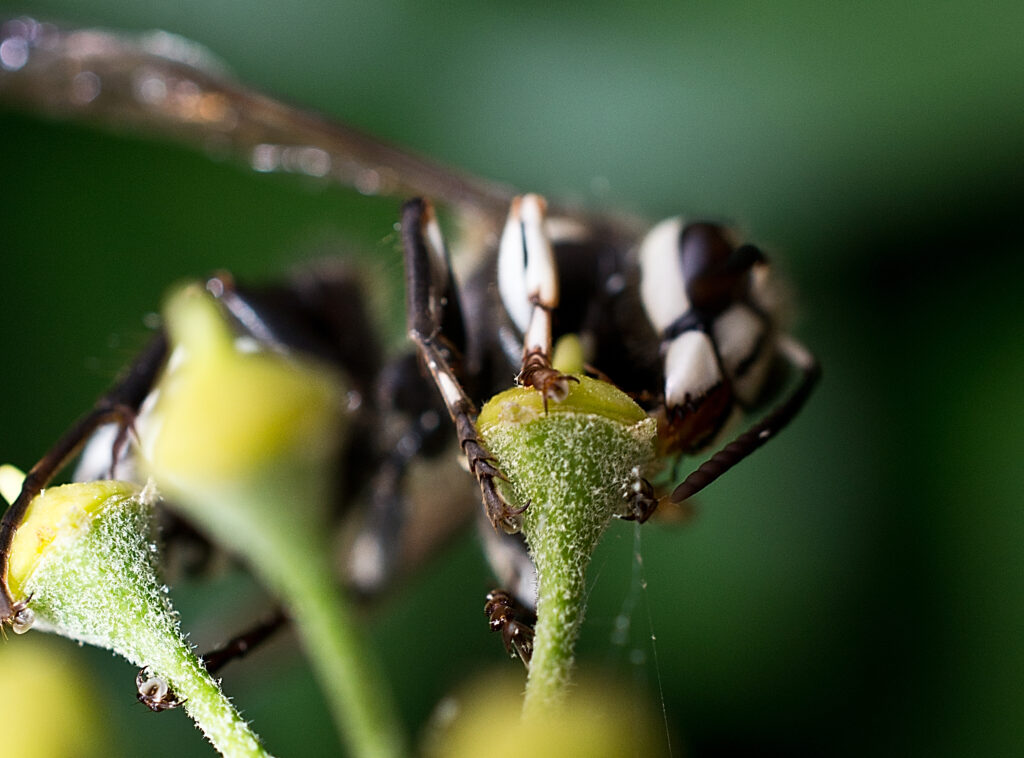
Bald-faced hornets are large, black and white wasps that build gray, paper-like nests in trees, shrubs, or under the eaves of buildings. These nests can be quite large, sometimes reaching the size of a basketball.
Sting Pain: The sting of a bald-faced hornet is very painful and can cause significant swelling and redness. These hornets are extremely protective of their nests and will aggressively defend them if they feel threatened. Many people are stung while timing bushes that have the nest hidden in them.
4. Paper Wasps
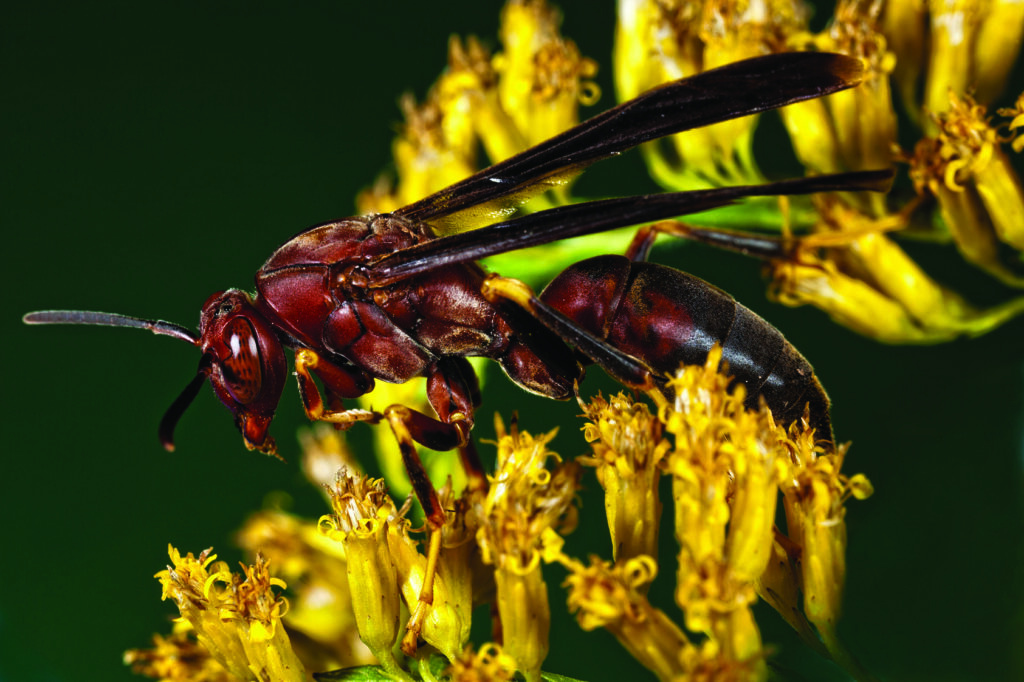
Paper wasps are slender wasps with long legs and can be identified by their reddish-brown bodies with yellow markings. They build open, umbrella-shaped nests that hang from eaves, branches, or other structures. These are most commonly found on the protective eaves of the home.
Sting Pain: Paper wasp stings are painful but typically less severe than those of yellow jackets or hornets. The pain is sharp and localized, with swelling and redness around the sting site.
5. Asian Needle Ants
Asian needle ants are a recently introduced stinging insect species in the Raleigh area. These ants are small, elongated and dark to black in color. They nest in soil, leaf litter, and under rocks or logs. Their nests are not as prominent as the fire ant and they typically do not “swarm” around when provoked.
Sting Pain: The sting of an Asian needle ant is painful and can cause allergic reactions, similar to fire ants. Their presence is concerning because they are not native and can disrupt local ecosystems.
6. Cicada Killers
Cicada killers are large wasps with black bodies and yellow markings. They are solitary wasps that dig burrows in sandy or loose soil, where they lay eggs on paralyzed cicadas. Many times the burrows can be large and they kick out a substantial amount of dirt.
Sting Pain: Cicada killer stings are rare and usually occur only if the wasp is handled. The sting is painful but less severe than that of other stinging insects on this list. Due to the large Cicada population in 2024 these will be prevalent this year.
Check out this video to see a few visuals of cicada killers and learn a few quick facts.
7. European Hornets
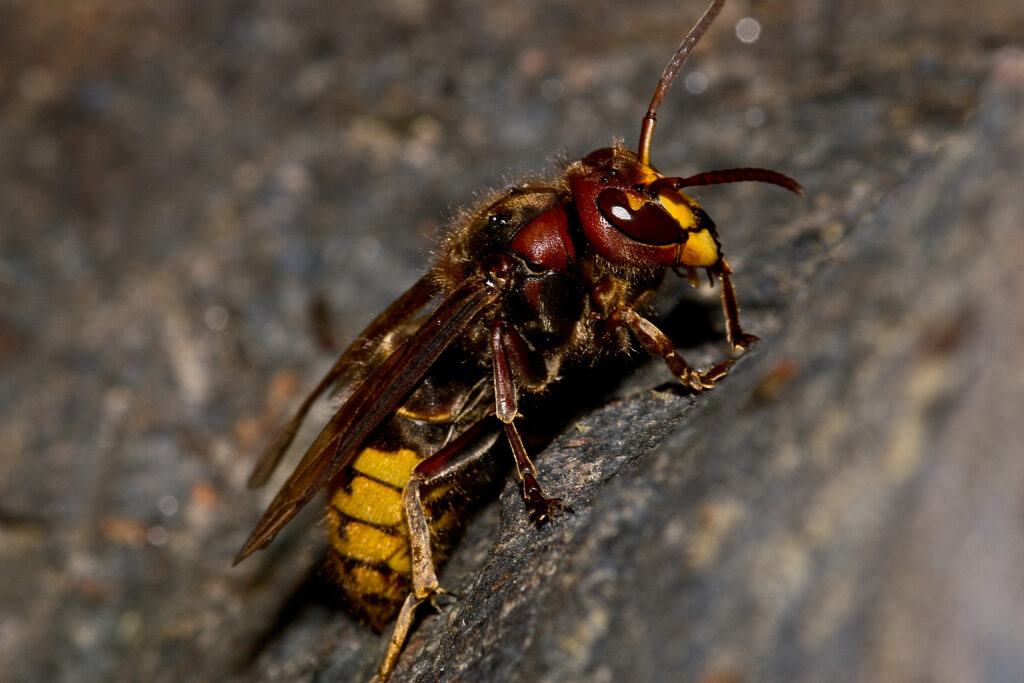
European hornets are large, brown, and yellow striped wasps that build their nests in hollow trees, wall voids, or attics. Their nests are made of a paper-like material that is typically a light brown in color.
Sting Pain: The sting of a European hornet is very painful and can cause significant swelling. They are less aggressive than bald-faced hornets because they are not usually found on the structure but will defend their nest if disturbed and can create quite a sting.
Stinging Insects: Honorable Mentions
Dirt Daubers
Dirt daubers are solitary wasps that build cylindrical mud nests on walls, ceilings, or other structures. They are not aggressive and rarely sting humans. Dirt daubers are dark in color and will tend to “hover” around people in garages or on decks.
Sting Pain: Dirt dauber stings are mild and uncommon, as these wasps are more focused on hunting spiders than on defending their nests.
Carpenter Bees
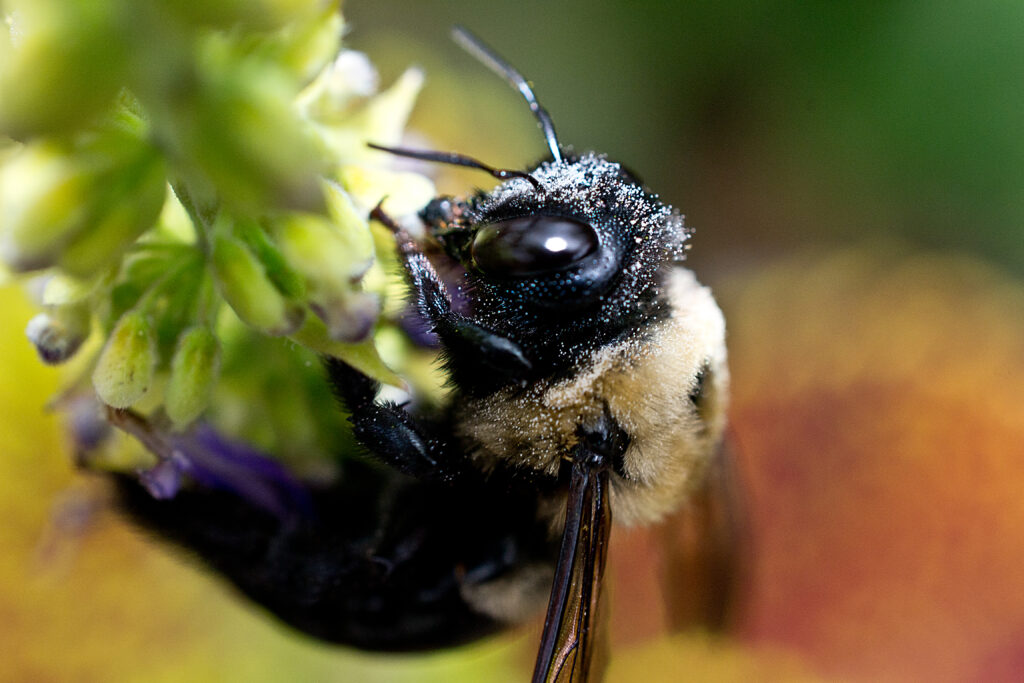
Carpenter bees resemble bumblebees but have shiny, black abdomens. They burrow into wood to create nests, often causing structural damage.
Sting Pain: Male carpenter bees cannot sting, and females only sting when provoked. The sting is painful but not as severe as that of other stinging insects.
Seasonal Aggression
Most stinging insects in Raleigh are less aggressive in early summer when their nests are small. However, as the summer progresses and their nests grow larger, they become more protective and aggressive. This behavior intensifies in the fall when the temperatures drop, and the insects prepare for winter.
Innovative Pest Solutions: Your Partner in Pest Control

At Innovative Pest Solutions, we understand the importance of keeping your home and family safe from stinging insects. Our professional pest control services are designed to target and eliminate these pests, ensuring a safe and comfortable living environment.
Expert Knowledge: Our team is knowledgeable about the behavior and nesting habits of local stinging insects, allowing us to provide effective and targeted treatments.
For more information or to schedule a service, contact us today. Let us help you enjoy a sting-free summer in Raleigh!





